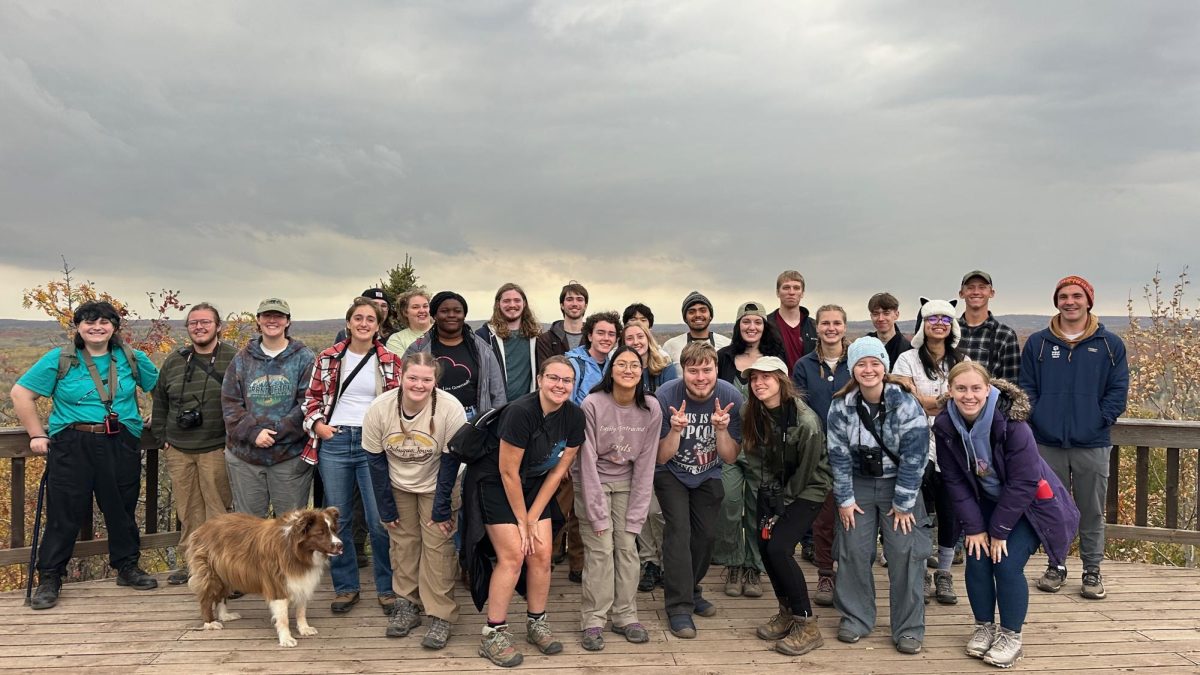VIEWPOINTS: Eruption unearths issues
April 20, 2010
Now for something completely unexpected: eyjafjallajökull
A friend from military school now heads a huge corporation headquartered in Amsterdam. He’s a powerful guy who never takes no for an answer, but last week he got stuck in Asia because of the eruption of Eyjafjallajökull. No amount of screaming and demanding that his corporation’s private jet take off could get him home. For days, he’s been as powerful as the backpacking Dutch students also stranded at the airport. Of course, he’s staying in a $1,000-a-night suite at a local luxury hotel.
When we think about life, tomorrow or a month from now, we always project forward from what we know and what we believe our trajectory is, based on yesterday. That’s also how policymakers and leaders project forward.
We rarely have enough data and that includes when that tectonic plate will shift and cause a huge tremor, or when the top will blow on a volcano.
In fact, we don’t have sufficient data on when the economy will turn around, when job creation will accelerate, or how fast the jobs will come. As you well know, the economists failed us miserably, as a state and as a nation. It makes it hard for leaders in Iowa, in Washington D.C. and worldwide to really plan ahead with much certainty.
We always seem to forget that when the Legislature wraps up its session, the decisions members have made are full of uncertainty.
No one knows how in the world Iowa’s law enforcement authorities will actually monitor, stop and warn — or ticket — the 3 million people who will be driving and texting now that that’s illegal.
No one really knows what the consequences are of a new law in Iowa that makes it much easier to buy and carry handguns. Will it reduce crime because more of us will be armed? Will it increase casualties because every argument at home, work, in a bar or ballpark will now turn into a gun battle?
Eyjafjallajökull is an interesting problem, because it has laid bare three things.
One, we suddenly see in stark relief how interconnected the world is. European grocery stores are panicked because they get most of their fresh fruit and produce by plane from somewhere. Florists are ready to shut their shops because fresh cut flowers also come by air. My cousin in Colombia who owns one of the largest flower greenhouses is stuck with millions of dollars worth of cut roses and carnations that can’t be flown overnight to Berlin, London, Paris and so forth.
Hotels in New York are bracing for a $250 million loss because European tourists are stuck in Europe. And, of course, just over the weekend, there were 12,000 fewer Europeans eating in New York restaurants, going to the theater, museums, movies and shopping.
Two, we have been warned how fragile our technology is and how a bunch of ash can bring it to its knees. Even the mighty Air Force One, the most sophisticated airplane in the world, is stuck in the United States. Our supply lines by air from forward bases to fight the war in Afghanistan can’t take off, and our wounded can’t go to Ramstein, in Germany, for the quickest medial treatment.
Three, we have become very dependent on just a few technologies; think electricity, oil and gas, corn and airplanes. In Europe, they still have lots of trains, and there are still some ferryboats that cross the English Channel. Of course, all of these are inadequate when things go wrong, and they were overwhelmed with this crisis. It’s so bad that the government has to step in.
“The British government announced Monday that it would send navy warships to bring home Britons prevented from flying home from the European mainland by the cloud of volcanic ash. Prime Minister Gordon Brown said the navy would send two ships to pick up civilians from ports along the English Channel and a third to Spain [to] bring back British troops, trying to return from duty in Afghanistan,” reported the Los Angeles Times.
Maybe we need to start thinking about a fleet of super-fast hovercraft ferryboats from New York and Boston to London and Amsterdam? Maybe we need to more quickly rebuild our passenger rail system in the United States, because if we get more severe winters going forward, I want to be on a train and not have a reservation on a non-flying Delta Airlines. Maybe air travel has reached the limits of its possibilities anyway, what with congested airports, charges for carryons, security issues, weather and mechanical problems, overbooking, crowded, tiny seats, etc.
Then there is this news: “OSLO (Reuters) — A thaw of Iceland’s ice caps in coming decades caused by climate change may trigger more volcanic eruptions by removing a vast weight and freeing magma from deep below ground, scientists said on Friday,” according to the Scientific American.
I ask you, is everything part of global warming and climate change? Or maybe the Rev. Pat Robertson is right — maybe this was caused by gay marriages. He didn’t say that? Just wait a few days. After all, he blamed Haiti’s earthquake on our sinful ways.
Oh, by the way, Iceland has 130 volcanic mountains. Of these, 18 have erupted since the settlement of Iceland in 874 AD. Most are unpronounceable, unless you speak Icelandic. If melting ice is the problem, then the Europeans are screwed, because there are 130 volcanic mountains just waiting to spew ash, flame, smoke and gas. Better make your train and boat reservations.
Steffen Schmidt is a professor of political science and chief political correspondent for www.insideriowa.com





